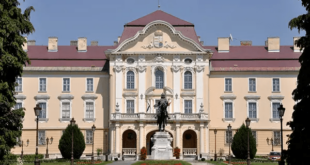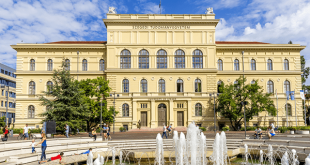Hungary, a land of rich history and vibrant culture, has become an increasingly popular destination among international students. Nestled in the heart of Europe, Hungary boasts a unique blend of Western and Eastern influences. As an international student, it’s crucial to understand the cultural nuances that shape everyday life in this beautiful country. As you embark on your journey to Hungary, it’s essential to familiarize yourself with the country’s culture, etiquette, traditions, and customs. That’s one way to ensure a smooth and fulfilling experience. This guide will help you adapt and thrive in your new Hungarian environment, making your stay not just memorable, but also remarkable.
Table of Contents
Things to Know About the Hungarian Culture
Historical Influences
Hungary, landlocked in Central Europe, has a rich and diverse culture. Throughout its history, Hungarians have faced challenges in finding their own identity while under the rule of different powers like the Ottoman Empire, the Habsburgs, and the Soviet Union.
These struggles still influence Hungarian society today. Some look to the past as Hungary’s golden years, while others focus on present achievements. Hungarians take pride in their distinctive identity, shown through their cuisine, warm hospitality, language, and unique traditions known as “hungarikum.”
What is Hungary Famous About: Hungarikum
“Hungarikum” means unique things in Hungary. These are a source of pride for Hungarians, like special foods and the Hungarian language, which is different from the languages of neighboring countries. Nearly everyone in Hungary speaks Hungarian.
And its unique roots make it a point of Hungarian identity and pride, even though it’s known to be a challenging language to learn. Hungarikum can be anything unique to Hungary, like animals, plants, and folk traditions. And these hold a special place in the hearts of Hungarians.
The Hungarian Society
Hungarian society is diverse, spanning from Budapest to the country’s borders. Hungarians respect women, elders, and ancestors. They have a deep love for the arts, music, poetry, literature, and sciences. Hungarians are known for their contributions to the world, with famous names like Zoltan Kodály and Béla Bartok.
Moreover, they excel in sports like fencing and swimming. The majority of the population identifies as ethnically Hungarian, with some experiencing challenges due to historical border changes.
Additionally, Hungarians are adaptable and often find creative solutions to challenges. Hospitality is a cherished trait, with food, especially paprika, being a source of pride.
Learn here the reasons why you should choose Hungary for your studies.
Geographical Aspects
The diverse geography of Hungary, from the Great Plain to the Danube River, influences its way of life, culture and traditions. A longstanding rural-urban divide persists, with over 70% now living in cities, mainly Budapest. The capital is a hub for education and culture, creating a distinct urban culture.
Moreover, Hungarians see themselves as part of Central Europe, bridging East and West. The country has a moderately dry continental climate, with average temperatures around 10°C. Precipitation varies, with drier conditions in the Great Alfold and wetter areas in the southwestern uplands.
Language and Communication
Hungarian, also called Magyar, is Hungary’s official language. It’s a language that is linked to Finnish and Estonian. English and German are other common foreign languages in Hungary, but there are other minority languages spoken.
When it comes to communication, Hungarians are passionate and often use stories, anecdotes, and jokes to make their points. They can be direct and may ask personal questions early in a conversation, which might seem blunt but isn’t meant to be rude.
Moreover, politeness varies, with formal language used when meeting someone new or in authority. In terms of non-verbal communication, Hungarians value personal space, maintain eye contact to show sincerity, and use finger flicks to point things out.
Understanding these communication styles can help international students interact more effectively in Hungary.
Hungarian Traditions
What Festivals are Celebrated in Hungary?
Hungary is famous for its diverse festivals, offering a taste of the country’s culture and traditions. Also, Hungary’s festivals range from traditional village celebrations to international events. Here are some notable ones:
- Budapest International Circus Festival: A biannual circus extravaganza with world-class acts.
- Hungarian Formula 1 Grand Prix: An annual motorsport event drawing car enthusiasts.
- Budapest Spring Music Festival: A global music festival featuring various genres.
- Valley of Magic Festival: A summer celebration around Lake Balaton with 800 events.
- The Danube Carnival: A multicultural, music-filled event in Budapest.
- Koros Valley Folk Arts Festival: A showcase of Hungarian folk heritage.
- Budapest National Gallop: A horse-focused event celebrating Hussar culture.
- Budapest Palinka and Sausage Festival: A food lover’s paradise in October.
- Christmas Fair and Festival in Budapest: A magical Christmas celebration in the capital city.
These festivals offer a diverse array of cultural experiences in Hungary throughout the year. Moreover, Hungary also celebrates “name days,” where people give flowers and sweets. Christmas is a family affair, while New Year’s is spent with friends.
Hungary Culture and Traditions: Dates of Significance
Here’s a list of important dates in Hungary for international students to remember:
- January 1st – New Year’s Day
- January 6th – Epiphany
- March 15th – Anniversary of the Uprising against Austrian Rule
- Varies each year – Easter
- August 20th – St. Stephen’s Day
- October 23rd – Anniversary of the 1956 Revolution
- December 25th – Christmas Day
Folklore and Art
Hungarian folklore is brimming with vibrant stories, music, and dance. Traditional folk instruments like the violin and cimbalom continue to be integral to modern Hungarian culture.
Music holds a special place in Hungary, with both folk and classical genres playing vital roles in the nation’s history and heritage. The realm of classical music boasts renowned Hungarian composers like Ferenc Liszt, Béla Bartók, and Zoltán Kodály.
Additionally, painters like Pál Szinyei Merse, Mihály Munkácsy, and Bertalan Székely left their mark during the nineteenth and twentieth centuries.
For architecture enthusiasts, Hungary’s historical cities like Eger, Sopron, Veszprém, Szentendre, and Budapest, offer a glimpse into Hungary’s rich history and culture through their remarkable buildings.
Hungary Culture Food
Hungarian food includes goulash, a popular stew with meat, potatoes, and paprika. They serve dishes with potatoes or noodles and have tasty bread and pastries. Traditional food is hearty but getting lighter. They use paprika and spices in many dishes.
Breakfast is quick, but on weekends, it’s fancier. They start with cornflakes, bread, or eggs. Lunch has two parts: main course and soup or dessert. Dinner is cold or salad with pasta and ground poppy seeds.
Etiquette in Hungary
Greetings and Social Interactions
In Hungary, greetings differ by gender. Commonly, there’s a strong handshake with eye contact. Men greet men with handshakes, close ones hug and cheek-kiss. Women greet with handshakes or cheek kisses if close. Men shake hands with women if she initiates, and close ties may involve hugs and cheek kisses.
Hungarians start with their last name, saving first names for close ones. Adults use first names with children and teens. When greeting an elderly woman, saying “kezét csókolom” (I kiss your hand) is polite, though you don’t actually kiss the hand.
Dining Etiquette
Hungarians value food and dining together. Families often share three-course meals, with lunch as the main one. Leaving food on the plate is impolite, suggesting dissatisfaction. Keep mealtime discussions formal and avoid inappropriate topics.
When you’re done eating, place your knife and fork across the plate. Hosts encourage guests to eat and refill empty glasses. And when toasting, don’t clink glasses, just make eye contact and say “Cheers.” Moreover, be mindful of seasoning! Some Hungarians might get it the wrong way if you season your food with salt/pepper.
Visiting and Gift-Giving
When you pay someone a visit in Hungary, it’s better to plan it ahead. However, friends and neighbors might drop by without notice. Hungarians like socializing at home, in restaurants, or cafes.
Being on time is important when invited for dinner, and for parties, avoid being more than 30 minutes late. When visiting a Hungarian home for a meal, consider bringing good gifts like chocolates, flowers (in odd numbers, avoiding 13), or liquor. Gifts are usually opened right away.
Navigating Daily Life
Public Transportation
In Hungary, public transportation is efficient with buses in cities, trolley buses, and trams in bigger cities, and even a metro system in Budapest. They also have suburban railway lines (HÉV) and boat services in the capital. You can buy passes for different time periods, like a month, which work on all types of transport.
If you need a single ticket, it’s for a one-way journey with no transfers. For journeys with changes, you’ll need multiple tickets. It’s more cost-effective to get a monthly or yearly pass if you use public transport often, and students get discounts.
Read here our guide on the living cost and studying cost in Hungary.
Shopping and Markets
Exploring local markets in Hungary is a great way to dive into daily life there. The Budapest central market is a hub for locals to buy fresh foods. Additionally, Budapest’s shops open on both Saturdays and Sundays, with extended hours on Saturdays.
Shopping plazas open from 10 AM to 7 PM on Sundays, while supermarkets start around 8 AM and close between 3 PM and 6 PM. The central markets in Budapest, such as the Great Market Hall and Lehel Market, are excellent places for fresh products and authentic Hungarian flavors. For unique finds and gourmet delights, Culinaris offers a wide range of international products, spices, sauces, and fine chocolates.
Education and Work Culture
Academic Environment
In Hungary, you’ll find excellent universities that offer high-quality education. They encourage students to be active in class and seek help from their professors.
The Bologna Process has helped to break down traditional study programs into smaller parts, making education more focused on students’ needs. Universities now describe their courses in terms of what students should know and be able to do after they graduate.
This new approach is applied throughout the entire learning process, from curriculum development to teaching and assessment. The academic scene in Hungary also has seen the increase of European inter-university cooperations and business and university collaborations.
Moreover, doctoral programs are also modernized, with support for researchers available through various programs like Marie Curie Actions or Erasmus.
Work and Business Culture in Hungary
Hungarian business culture values punctuality, respect for hierarchy, and clear communication. Meetings require appointments made well in advance, typically not on Fridays or during the summer and holiday periods. Punctuality is crucial, and if you’ll be late, inform your Hungarian counterpart immediately.
Meetings often start with small talk and formality before delving into business matters. Hungarians appreciate a detailed approach and expect contracts to accommodate changes. Moreover, status is significant, and proper respect should be given to colleagues and supervisors.
Making Friends in Hungary
Making friends in Hungary is quite easy, since Hungarians are known for their hospitality. Engage in local activities and join clubs to meet people with similar interests. When interacting, respect their love for food and wine. And avoid criticizing their cuisine, especially if it’s made by older Hungarians.
Also, be sensitive about economic topics and maintain formality around food. Approach discussions about World Wars and the Cold War with care. However, avoid debates about Hungary’s ethnic minorities or neighboring countries. Moreover, don’t be surprised if your Hungarian friend expresses opinions directly, as it’s a common communication style.
Culture and Traditions in Hungary: Tips for International Students
To fully experience the local culture and traditions in Hungary, international students can participate in local festivals, try traditional Hungarian cuisine, and join cultural groups. Additionally, make sure to learn basic Hungarian phrases to facilitate daily interactions.
Moreover, when at school, international students can make the most of their academic experience by actively participating in class discussions. Seeking help from professors, interacting with local students and getting involved in extracurricular activities are also recommended.
And of course, don’t miss the must-visit places! International students should definitely visit Budapest, the capital, to explore Buda Castle, Széchenyi Baths, and the Hungarian Parliament. And lastly, Lake Balaton is a popular relaxation spot to enjoy the Hungarian summer!




 Aljawaz Your guide to study abroad
Aljawaz Your guide to study abroad









